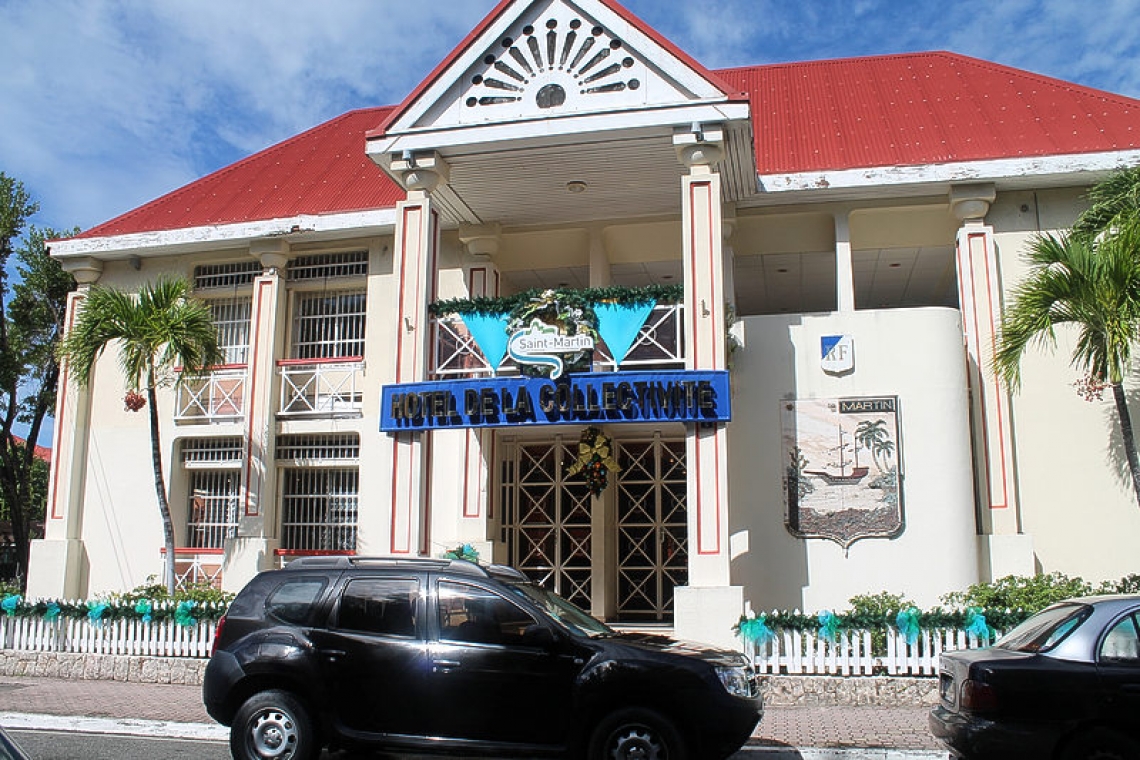~To start widespread screening~
MARIGOT--The Collectivité’s second coronavirus COVID-19 briefing on Monday on Facebook coincided with President of the Republic Emmanuel Macron’s declaration to the nation that the lockdown will continue until Monday, May 11, a development that will undoubtedly test the patience of citizens in St. Martin.
President Daniel Gibbs acknowledged the extended confinement, close to four weeks, will be “long and hard.” He and First Vice-President Valérie Damaseau hosted the briefing once again, covering a number of issues as well as answering questions from the public and journalists.
COVID-19 testing: The Collectivité is working on implementing large-scale screening of the population and investing in testing equipment. The plan is to test for symptoms, but also antibodies that will determine the percentage of the population who have been affected by the virus and recovered, and those who need to go into isolation and be treated.
It is hoped this can be done when the time comes to lift the confinement and start to revive the economy. The necessary funds for this testing have been secured, also from European Union (EU) partners.
Testing of the whole population, which has been proposed in St. Barths at a cost of some two million euros, will not be feasible for St. Martin. St. Barths has a population of only 10,000 inhabitants and has a geo-political context quite different from St. Martin.
“We have to factor in the relationship with our Dutch-side neighbour and Anguilla,” said Gibbs. “On the other hand, we have asked the health decision-makers to come up with a solution for us to test a maximum of people. But rest assured we are convinced that widespread testing is the fastest way to exit from this crisis.”
Personal protection from COVID-19: 24,000 masks have been ordered and quantities have been distributed as a priority for essential workers and front-line medical personnel. These include garbage-collection workers, staff working in social welfare, Department of Solidarity and Families, and persons delivering food packages, among others.
The Collectivité said Louis Constant Fleming Hospital is “under control” as far as medical equipment is concerned. A private enterprise was thanked for providing medical visors.
In the post-confinement period, local distributors will be able to sell masks at competitive prices. The Collectivité is also calling on seamstresses to make washable and reusable fabric masks that must conform to strict quality criteria.
Complaints about border control and prices: Some complaints were received about the procedures for crossing the border and these were reviewed by the Préfecture and the Dutch St. Maarten government. The respective authorities decided that, while inconvenient, there will be no change to the mandatory authorisation procedures required.
There have been complaints about inflated prices in supermarkets. Préfète Déléguée Sylvie Feucher has undertaken to carry out an investigation of this.
“The absence of a price observatory in St. Martin, and the lack of controls by Consumer Affairs and Fraud Control in Guadeloupe is penalising St. Martin inhabitants,” said Damaseau.
Outlook for the next tourist season: This question depends on the health and economy of the North American market when it exits from the COVID-19 pandemic. Hotels in St. Martin have already suffered from three very mediocre seasons since Hurricane Irma. They will have to adapt accordingly and assure their guests’ health security. Part of the recovery action plan will focus on promoting the destination in the markets least affected by COVID-19.
“The digital promotion method is our priority,” added Damaseau. “Overseas regions and Collectivité’s must reposition themselves with a recovery pact and a budget action strategy. Our multi-annual investment plan can also help in this regard.”
The Collectivité indicated the COVID-19 worldwide pandemic has exposed the inconvenient reality that a small territory like St. Martin needs to have less dependence on tourism and more emphasis on sustainable local industry. Training and financing are already in place to develop the agriculture and fisheries sectors.
Redefining a tourism strategy, making financial leverage more efficient and accelerating new activities in St. Martin are the immediate goals, as well as reforming the urban plan and easing tax policies, which will have to be implemented quickly to encourage new investment.
The elected officials were asked why projects and public works could not be completed during this period of confinement. This was already explained by Vice-President Steven Patrick who said that most contractors, because of the nature of the work, could not comply with the hygiene and distancing rules and had to suspend the work or had supply difficulties.







